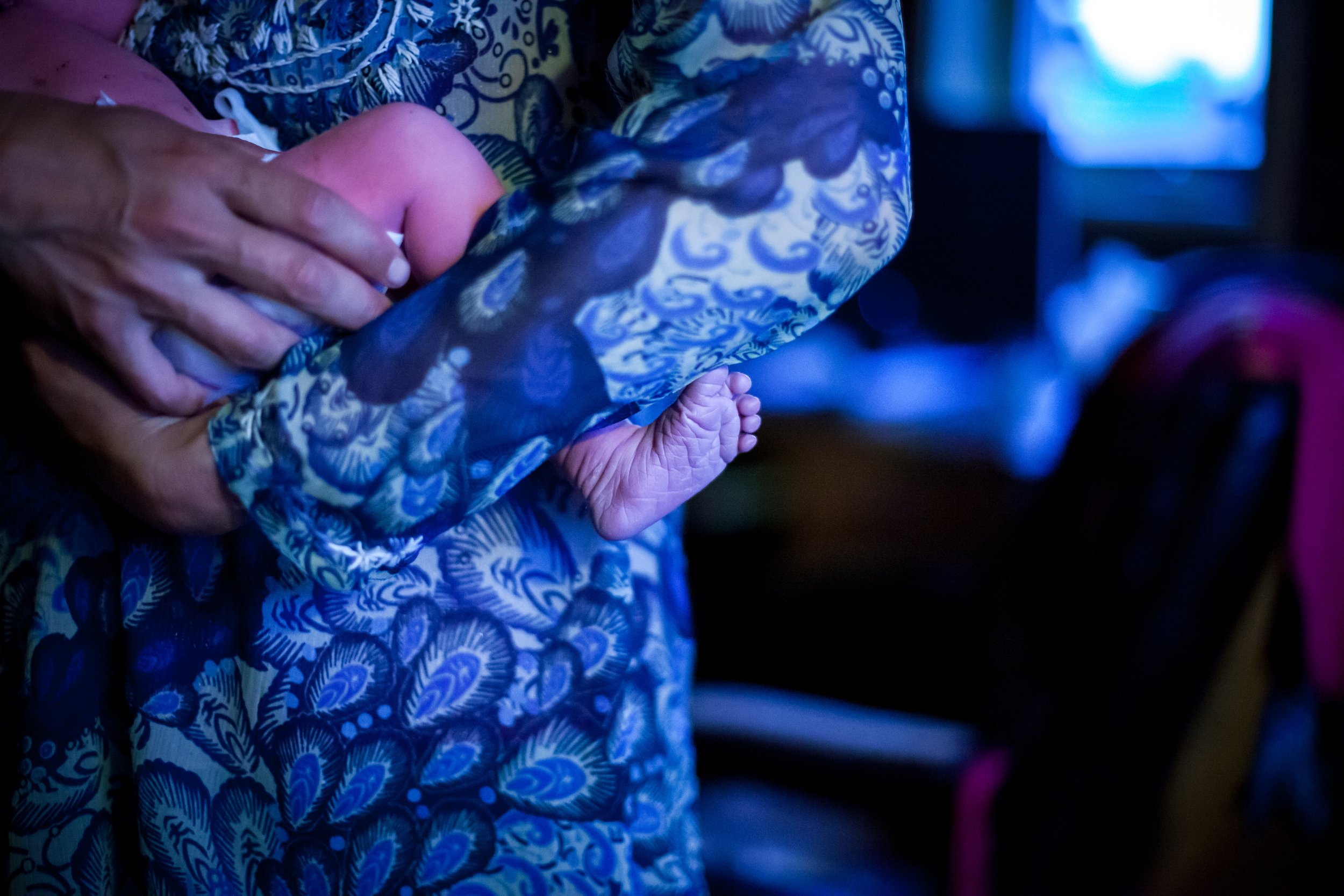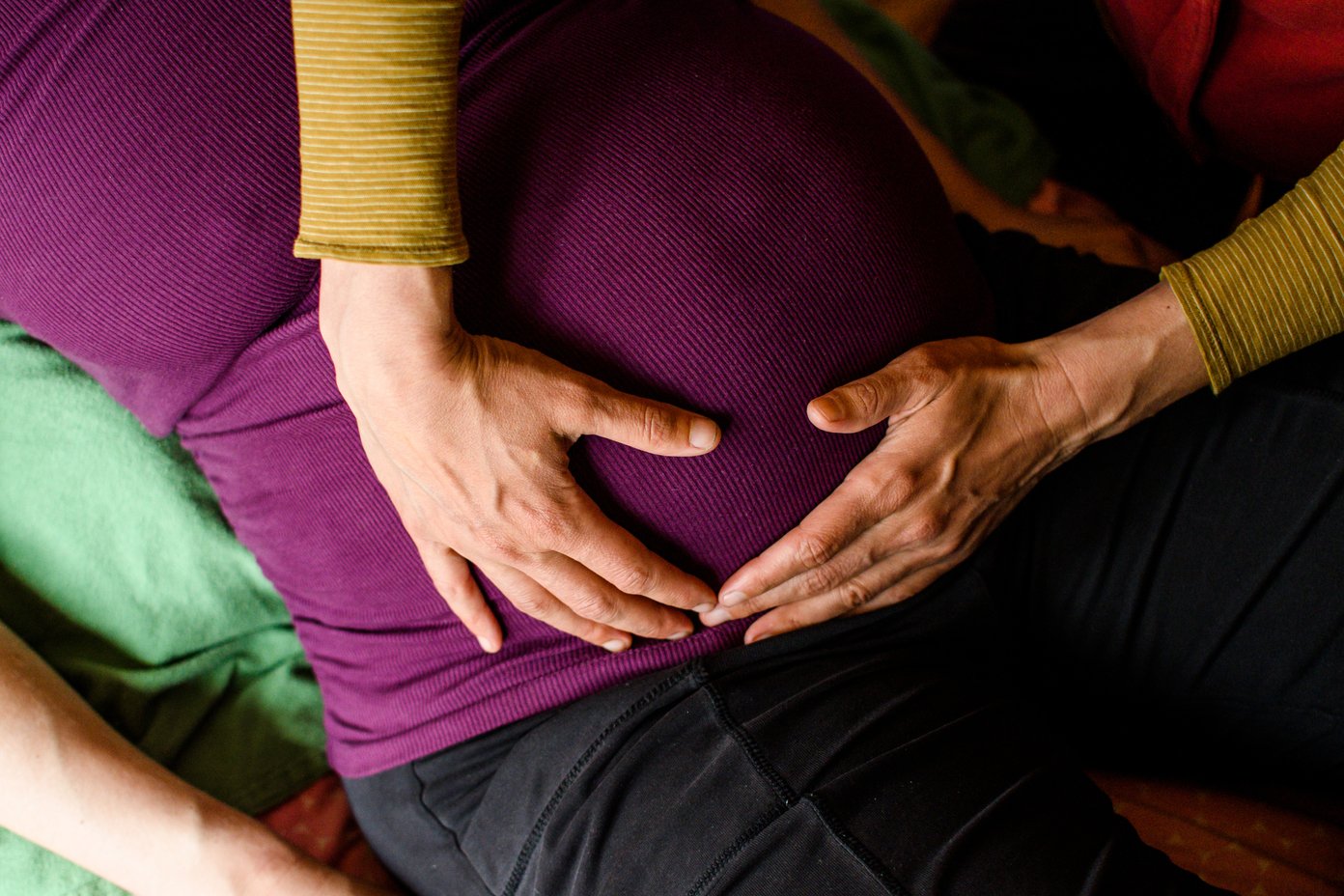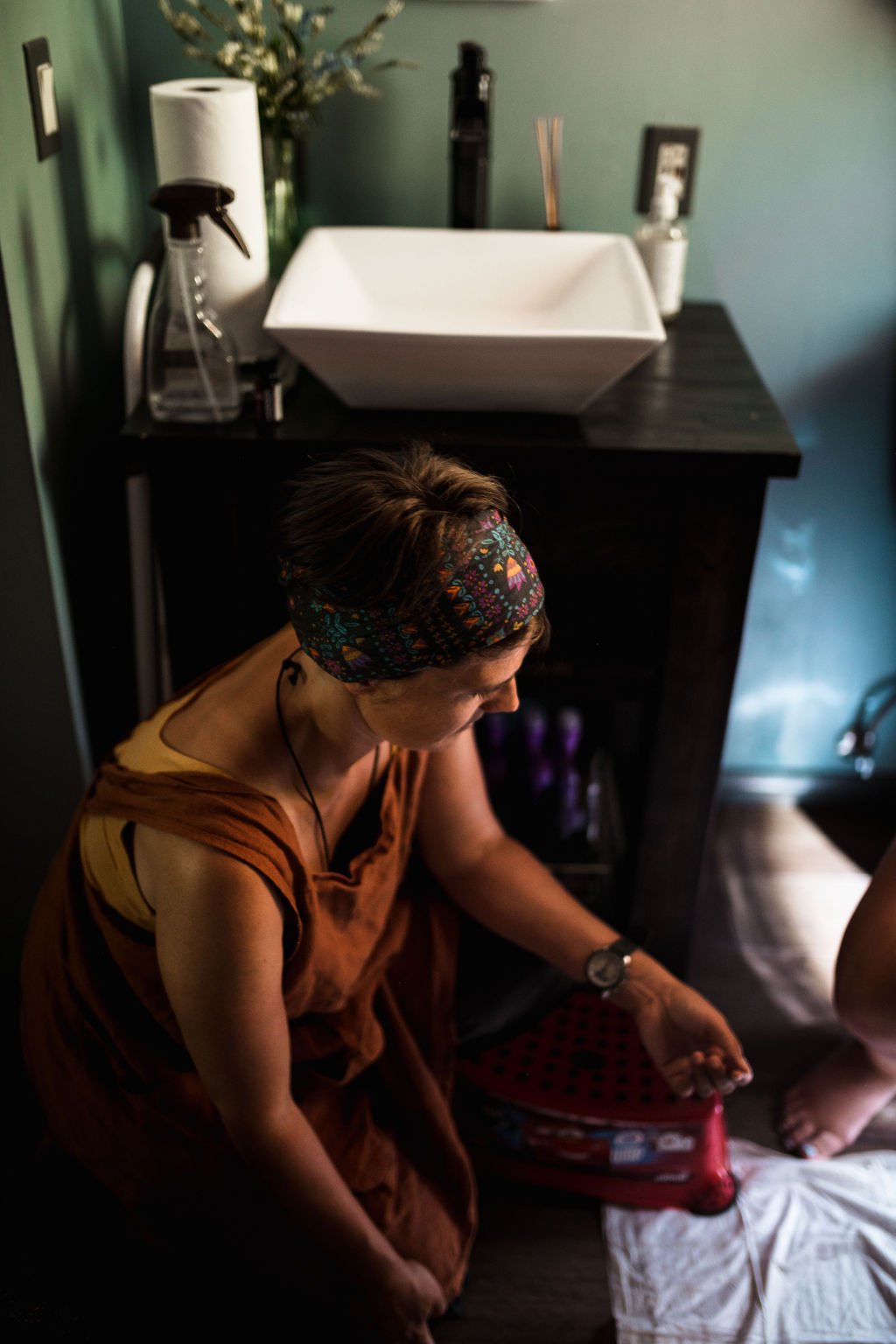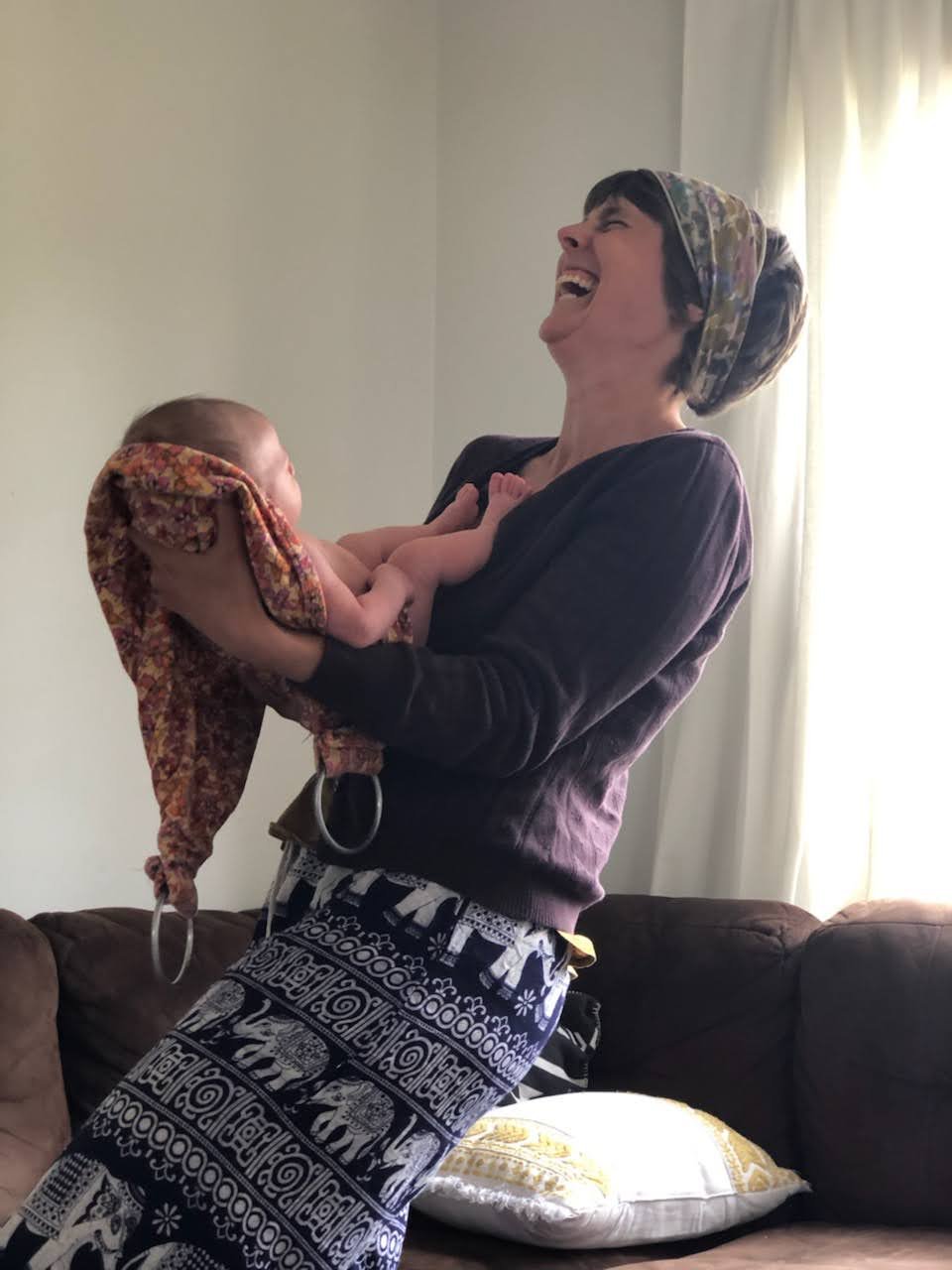There’s no place like home.
There’s no place like home.
“Birth is not only about making babies. Birth is about making mothers - strong, competent, capable mothers who trust themselves and know their inner strength.”
_Barbara Katz Rothman
COMMUNITY MIDWIFERY
Being a Community Midwife is a lifestyle; a belief system that holds people as sovereign beings capable of making the best informed choice for themselves and their families.
I am a weaver within the community - working with other midwives and an assortment of practitioners to supply families with the resources they need. We are all stronger together.
BIRTH PHILOSOPHY
My midwifery practice focuses heavily on the main pillars of a healthy pregnancy and birth:
Connections / Relationships
Nourishment (of the whole being)
Rest and Stress management
Movement (not the same as exercise)
Hydration
I believe that focusing on these pillars set us up to have healthy vibrant pregnancies, births and postpartum times.
Also, nature can be a bit of a wild card! So, while we set ourselves up the best we can, we also prepare and train for unseen circumstances.
Birth is basic to human life, we’ve been birthing since the beginning of humanity. Yes, times have changed, but the mechanisms of birth have not.
Maria the Midwife
Midwifery Package
$5,500
-
About 40 to 60 min
Personalized prenatal care
Supporting wellbeing and health
Talking over your desires and concerns
Feeling baby and listening to their heart
Peppering in bodywork as needed and desired
Labs and testing options. Including: blood work, glucose testing and GBS testing
A home visit around 36 weeks
The usual frequency of prenatal visits: monthly until 28 weeks, then every two weeks until 36 weeks, then weekly until birth.
There are circumstances where more frequent prenatal visits are recommended.
-
On-call starting at 37 weeks
I typically arrive during active labor.
Attending with me is a birth assistant or another midwife.
After your birth I will stay about three hours to:
Make sure everyone is well
Newborn exam
Clean up
Talk over “when to call your midwife”
Tuck everyone into bed
I’ll be back in 24 to 48 hours for a postpartum visit. Though am still on call if anything comes up and you need my assistance.
-
Personalized care
Breastfeeding support
Baby bodywork as needed
Check wellbeing and vitals
Weigh the baby
Offer newborn screenings
Emotional support
Referrals if needed
Available for support as needed
Postpartum visit usual schedule: 24/48 hour, 3 to 5 day, 1 week, 2 week, optional 4 week, 6 week final visit.
All visits are done in home except the final 6 week is done in my office.
-
Compassionate miscarriage support is offered as a gift to anyone who desires it.
I don’t want people to have to walk this path alone.
This support is mainly done over text or the phone. There is no cost to this gift of support.
Common Questions and Answers
-
Healthy people who feel that homebirth is the best option for them.
People who are willing to make their own decisions and understand that they are ultimately responsible for their decisions.
I work with people of all religious and spiritual beliefs along with all pronouns.
People with a wide variety of backgrounds and economic status.
And ideally with people who have a good sense of humor.
-
Nothing is for everyone. If YOU are wanting or pondering a homebirth you can reach out for a free consultation.
-
Everything we do carries risk. Homebirth is a great option for normal physiological births with people who truly want a homebirth.
Part of what makes midwifery care safe is the relationship we build with each other during our prenatal visits. I get to know you and your baby. You get to know me and that I’m on your team. We build trust with each other and I know you and your baby’s ‘normal’ so that if somethings starts to deviate from normal we can identify it and take appropriate actions.
CLICK HERE for an article from Sara Wickham about this.
-
$5,500
A free consultation is available.
At our initial prenatal a $700 non-refundable retainer is due.
Full payment is due by 36 weeks of pregnancy and is nonrefundable at this time.
We can talk over your individualized payment plan at the initial visit.
Accepted: cash, check, HSA/ HRA cards & checks, and credit cards. Credit cards and HSA cards will include a processing fee.
-
There is not. Late-entry clients have a lot of catching up to do. Part of what makes midwifery care safe is the relationship and trust built between clients and the midwives. This takes time. Late-entry clients usually have more frequent appointments right away. Also, we go over a lot of information during our time together. If we have less time together, there is more to cram in.
-
Who do YOU want to be present at the birth?
On my end, I will be there along with another midwife or birth assistant. The assistant typically arrives as birth is imminent to help assist with the birth, immediate postpartum and clean up.
-
Nope. A midwife is a primary care provider trained in supporting normal physiological pregnancy, birth and postpartum. There are times when a midwife may refer a client to a doctor for a specific reason. However, in general you don’t need to see more than one health care provider regularly throughout pregnancy.
You can also choose co-care where you see an OB along with your midwifery care. If you are planning to do so we will talk over the benefits and drawbacks.
-
Yes. Lab Work is done in-office and is run through the St Luke’s lab. Basic lab work is included in the midwifery ‘package’ at the beginning of care: Blood type, RH factor, Antibody screen, Rubella immunity, CBC, OB panel, Iron TIBC, Ferritin and Urine culture.
Lab work is offered again around 28 weeks to check for optimal blood expansion and possible anemia. Extra labs are available at cash prices (which are typically WAY cheaper than insurance!!)
-
Ultrasounds are not covered in your midwifery package.
Ultrasound at St Luke’s/Aspirus: I will send in a request and the scheduler will call you.
Ultrasound at Essentia: you will need to call in and make a prenatal appointment and let it be known you would like an ultrasound.
If you are wanting an ultrasound to help you figure out dating, then the sooner the better as later ultrasounds are less accurate for dating.
If you are only wanting one ultrasound I recommend an anatomy scan around 20 weeks where the scan checks the development of the organs and spine.
-
Typically any area within a 60 mile radius of Duluth. This includes parts of Wisconsin.
Sometimes I travel outside of this radius, though it depends on my discretion and the birth calendar.
If you live a ways away (I’m looking at you Grand Marais), consider finding a location near Duluth for your homebirth.
-
All prenatals (except the 36 week homevisit) and the final six-week postpartum visit are held at my home-office in the Lincoln Park neighborhood of Duluth.
618 Atlantic Avenue, Duluth. The red and cedar wood house with lots of plants.
-
This is a bummer and all too common. You don’t have to convince anyone that the decision you are making is the best decision for you. And at the same time it is best to have the support of your partner.
Many people are scared of things they don’t understand. This is often true for homebirth too. While I’m against trying to convince people to do things they don’t want to do, I am passionate about sharing resources and information to those who are open.
Resources you could share with them: Born at Home film or another resource of your choosing. Dr Sara Wickham’s article: Is Home Birth Safe?
-
Mmmhmmm. Please, seriously consider hiring a doula.
Doulas help people have better hospital births. They are also great support at homebirths!
Here is a lovely resource for first time parents from Dr Sarah Buckley.
-
Nope. I prefer my role as a homebirth midwife. There are many great doulas in the area to meet with and choose from.
CLICK HERE for a list of local resources.
-
A midwife is a primary care provider trained in normal physiological pregnancy, birth & postpartum. A midwife does all of the prenatal, birth and postpartum care up to 6 weeks; including newborn screenings.
Doulas are a wonderful support people. They offer comfort and may suggest position changes. They are not trained in any of the above.
-
I come with; I’m still your midwife and can help support & advocate for you, but I would no longer be the primary healthcare provider while in the hospital.
Most transfers are non-emergent and we drive there in our own vehicles.
The most common reason to transfer during a first time birth is maternal exhaustion. In this case we are transferring to utilize some of the ‘tools’ that the hospital has available. This could look like pain relief, eating, resting and then having a baby vaginally.
Once all are back home, midwifery postpartum care continues.
There are other reasons for transfer and we talk over these during our 32 week prenatal visit.
-
Nothing is required. However, in-person classes are a great place for making connections with other parents and learning helpful information.
While you’ll gain a lot of information in our prenatals, there is no way we can go over EVERYTHING. Our Duluth community regularly offers classes.
There are also many online options. If you are choosing a homebirth I don’t recommend attending a hospital birth class as many things won’t apply.
I am a traditionally trained certified professional midwife licensed in Wisconsin
Let’s work together.
Set up a free consultation
“Midwifery care is not just about making someone feel good and at ease. It is also, and perhaps even more importantly, an opportunity to assist with acknowledging and cultivating resilience as an important resource for the birth process.”
-Nicole Moralis & Jamie Mossay
excerpt from ‘Restorative Midwifery: A birthworker’s guide to becoming’


















